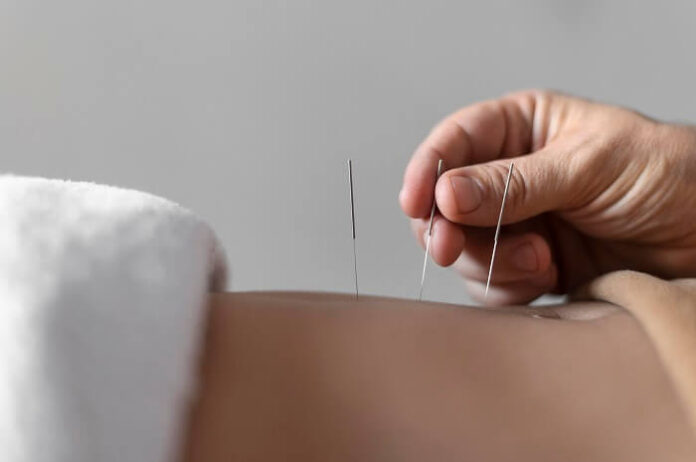A clinical trial revealed that acupuncture significantly relieved leg pain and disability caused by chronic sciatica, outperforming placebo (sham) acupuncture. Participants who received acupuncture experienced twice the pain reduction and nearly three times the decrease in disability, with these benefits lasting throughout the 52-week study period. No serious side effects were reported, and the trial took place at six hospitals in China.
Sciatica, caused by compression of the sciatic nerve, leads to deep pain in the back and legs. Acupuncture, widely used for treating sciatica, has shown positive results, as supported by a 2023 meta-analysis. This trial, published in *JAMA Internal Medicine*, aimed to provide clinical evidence for acupuncture’s effectiveness.
As reported by medicalnewstoday, In the trial, 216 individuals with chronic sciatica from herniated discs were treated with either 10 sessions of acupuncture or 10 sessions of placebo acupuncture over four weeks. Participants reported their progress at weeks 2, 4, 8, 26, and 52. While the acupuncturists knew the treatment type, participants, assessors, and statisticians were blinded to it.
Dr. Medhat Mikhael, a pain management specialist, pointed out that typical treatments for sciatica include physical therapy, medications, and, in severe cases, steroid injections or surgery. He noted that acupuncture could be helpful by improving blood flow, relaxing muscles, releasing endorphins, and modulating the central nervous system (CNS) to reduce pain.
Acupuncture stimulates Qi, or vital energy, which is believed to improve circulation and remove bodily waste, enhancing the body’s function. According to Jason Chong, a vocational education teacher, acupuncture also reduces sympathetic nervous system activity (associated with stress) and increases parasympathetic activity (linked to relaxation). It influences brain wave patterns, releases neurotransmitters like serotonin and dopamine, and regulates the hypothalamic-pituitary-adrenal (HPA) axis, all of which contribute to stress and pain relief.
For sciatica pain, Chong suggested 6–10 acupuncture treatments for acute cases, while chronic conditions with structural damage may require ongoing maintenance treatments.
He emphasized that despite lifestyle changes, many people may need continuous acupuncture treatment due to repeated engagement in activities that originally caused their sciatica.























